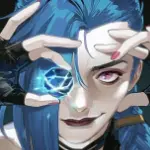Before Kiefer Sutherland’s name became synonymous with pure adrenaline as the relentless Jack Bauer in 24, he had already made his mark in cinema with cult classics like The Lost Boys. But it was in Touch where we saw a different side of Sutherland: that of a father devastated by loss, trying to rebuild a bridge to his son through a logic as old as the universe itself,human connection.

Touch was undoubtedly a series that aspired to more. With a narrative that crossed borders, languages, and hearts, it presented from its very first episode an ambitious premise: everything is connected. Every action, no matter how small, has the power to affect other lives across the world. And if that’s not television with soul, then we don’t know what is.
The story revolved around Martin Bohm (Sutherland), a former reporter who had lost everything: his wife during the 9/11 attacks and his son to a world of silence. Jake (David Mazouz, whom we would later see in Gotham) did not speak, could not tolerate physical contact, and found refuge in numerical patterns that, at first glance, seemed random. But they weren’t. Every number, every sequence, was a code, an invisible map leading to someone else’s story. Jake didn’t speak in words; he spoke through the universe.

One would think that a series with such a premise, supported by an actor of Sutherland’s caliber, a script that blended spirituality and mathematics, and a character like Arthur Teller (played by the always-respected Danny Glover) as the philosophical catalyst of the story, had all the ingredients to become a modern classic. And yet, Touch was canceled after its second season.
Why? That’s the great question left behind by this misunderstood gem. The first season of Touch was a demonstration that television could be art and emotion without resorting to shootouts or sordid plots. With episodes that connected characters in Japan, Nigeria, Ireland, or New York through seemingly unrelated events, the series dared to remind us that humanity is a living, breathing, deeply interdependent network.

Each episode was a choreography of impossible coincidences, a symphony of causalities disguised as chance. From a child with a lost phone to a woman caught between decisions that crossed continents, the structure of the series challenged us to think, to feel, to believe. The episodic format, where each individual story was part of a larger web, was a narrative experiment that, although risky, worked with an almost poetic beauty.
Sutherland, without overacting, delivered a performance that kept the heart of the series beating. It wasn’t his loudest role, but it was one of his most human. His frustration, his despair, his wavering faith... all of it was palpable in every glance, in every scene where he tried, once again, to understand his son. Jake, for his part, was an endearing enigma: an eleven-year-old oracle trapped in a mind that processed reality with an alien kind of beauty.

And when Danny Glover entered the scene, with his calm wisdom and compassionate gaze, the series reached another level. His character not only validated Jake’s genius but provided a theoretical framework that wove together science, quantum theories, and spirituality. It was a series that was not afraid to be intelligent. And perhaps, just perhaps, that’s what doomed it.
The second season, though more linear and centered on a conspiracy-driven narrative, never lost its essence. But viewership declined. Perhaps the audience wasn’t ready for a show that demanded attention, sensitivity, and a touch of faith. Perhaps, in a sea of fast content, Touch was a poem in a world of headlines.

What is undeniable is that Touch left a void, at least for me. A universe of narrative possibilities cut short. Unanswered questions. Stories left without endings. But it also left something more valuable: the feeling that something as simple as a number can change a life. That the connection between two strangers can be orchestrated by fate. That sometimes, a child’s silence can be more eloquent than a thousand words.
Touch should not be remembered as "that show that got canceled." It should be remembered as the series that dared to look beyond the noise, to touch chords others didn’t even know existed. Sometimes, the most valuable things don’t last. But they leave a mark. And Touch, without a doubt, did.









































View replies 1
View replies 0
View replies 0